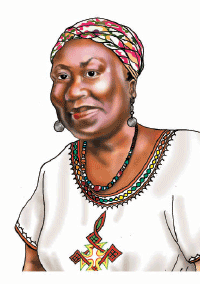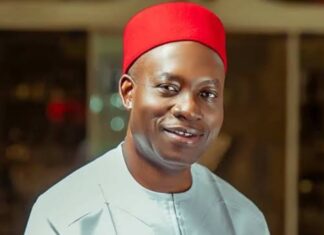Over and over again, Nigerians have been told that they must demand accountability from their leaders. That was the advice given us by the Prime Minister of Britain, David Cameron, when he visited Nigeria and spoke at the Lagos Business School (LBS) some years ago. We cannot agree more. However, the issue we have been unable to resolve is: Just how do we do it? Of course, we now know that we can wait for four years and vote out those who may have betrayed our trust; that is, in a situation where it is actually the individual that the majority of people vote for who eventually gets into office. But then, is that the best a people can do to hold their leaders accountable – merely waiting to boot them out after four years? What happens during those four years while they are in office? How can we ensure that the people we have elected do not misgovern us – and with impunity?
Talking about impunity, the nation has continued to witness it in its crudest and most ferocious form. The daily, mind-boggling revelations regarding the systematic looting of our national treasury during the last administration, especially in connection with the 2015 election campaigns, present us with a serious challenge as citizens. We must ask ourselves how it could have been possible for such huge sums of money to have been successfully diverted into the accounts of individuals and companies without anyone crying foul while all of it was going on. Absolutely, nobody was looking after the interests of the Nigerian people – not the Finance Minister and Coordinating Minister of the Economy nor the Governor of the Central Bank of Nigeria (CBN). So much money was being transferred from the CBN under their watch, and they said nothing? How do we hold leaders accountable at that level? Is it the CBN governor’s duty to accede to every single demand or request emanating from the President? Is it reasonable to expect him to stand up to the President in the interest of the people?
Several other issues are pertinent to the present discussion. As we speak, the President of the Senate, Bukola Saraki, is standing trial at the Code of Conduct Tribunal (CCT) for false and anticipatory declaration of assets. He has refused to step down from his position while his trial is being conducted. Nigerians are thus compelled to see the president of our Senate being docked at the tribunal and thereafter return to conduct the affairs of that supposedly ‘distinguished’ chamber. Is that proper? How come we are unable to insist that Saraki should temporarily vacate his position? Or is it that we are unwilling? The situation is set to escalate if the Senate president and his deputy are further arraigned, as is being expected, before a Federal High Court in Abuja on “two counts of criminal conspiracy and forgery of the Standing Rules of the Senate used for the leadership election of the presiding officers of the Senate in June 2015”, according to The Punch newspaper of June 23 (page 2). In other climes, these officers would have needed nobody to nudge them into relinquishing their positions; they would have recognised that it would not be appropriate for them to taint the image of the institution because of any personal interest. Such is not the case in Nigeria.
The response of some of our “distinguished” senators to these troubling developments is all the more disconcerting. During the week, a bill was presented seeking to grant immunity to the principal officers of the National Assembly – and, for good measure, asking that they equally enjoy lifetime pensions from the Federal Government of Nigeria. One can only say “thank God” for the outcry that greeted the announcement of the proposed bill. However, one wonders whether that general opposition will be sufficient to deter the Senate from going through with the evil plan. The Nigerian people have been scorned and dispossessed of their resources so many times in the past; who is to say that it will not happen again? What can we do to prevent it? What must we do as a people to ensure that we are responsibly governed?
It is clear that good governance will not be delivered to us on a platter of gold. We must wrest it from our ruler-leaders. Of course, there are some among us, the general populace, who benefit from the leaders’ corruption and therefore prefer to maintain the status quo. However, the majority of us must resist them and organise ourselves to bring about the change we desire and deserve. One way this could be done is by refusing to honour leaders (both past and present) who neither deserve nor have earned it. Let us stop inviting them to our gatherings. Imagine the insult of having a former president lecture on the importance of building institutions when all he did during his tenure was to elevate the interest of individuals (self, family, friends and colleagues) above that of the nation! Further, let us be bold to speak out against the injustices and corruption they perpetrate, and demonstrate our dissatisfaction in any peaceful and non-destructive way we can. It is time to let those who are privileged to rule over us know that our trust must be earned, and that the government derives all its powers and authority from the people.

- Advertisement -
- Advertisement -
Must Read
Soludo says he’ll be re-elected, argues he has no formidable opponent
Soludo also claimed South-East voters are loyal to APGA when it comes to governorship and local government elections.
By...










